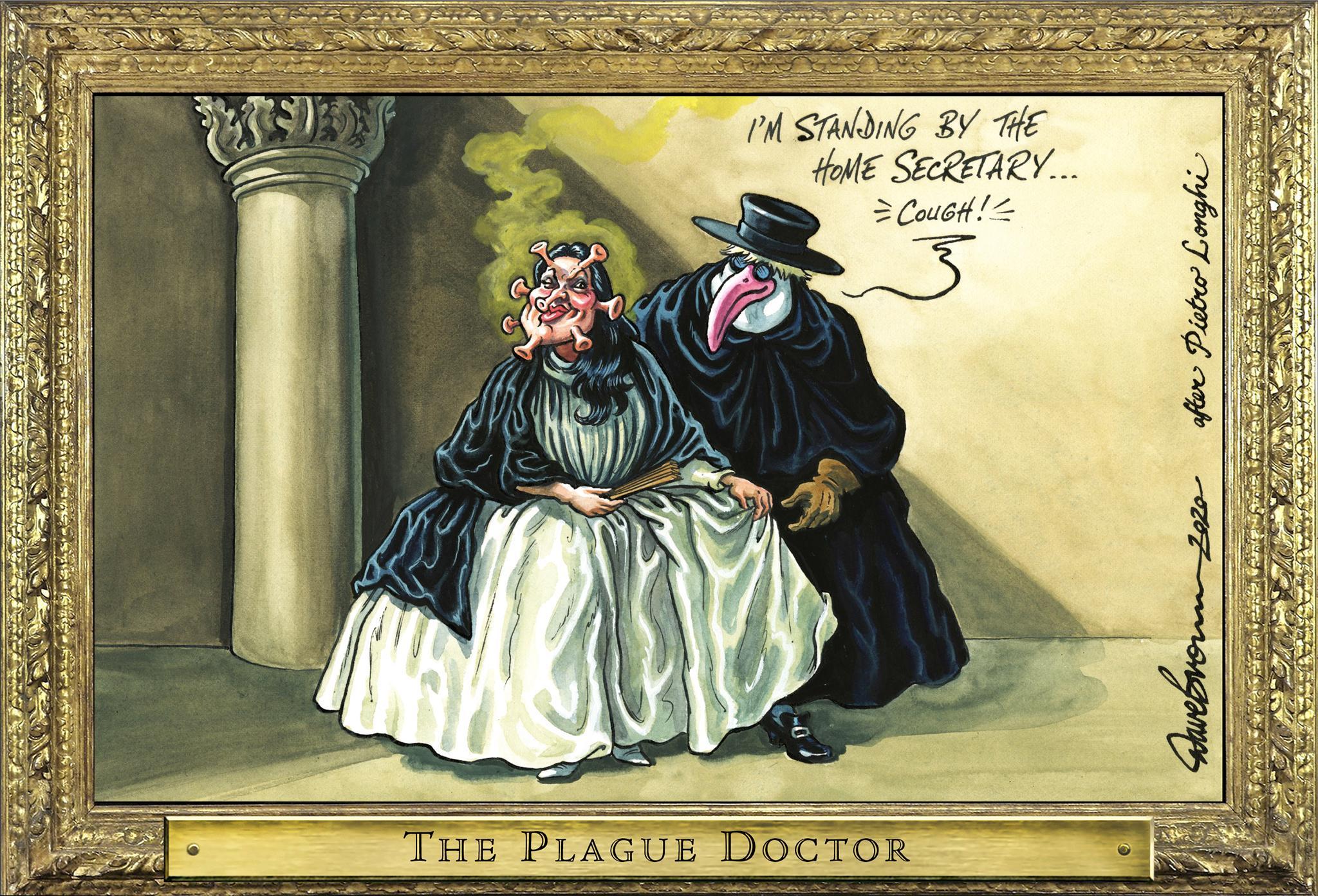It is difficult to decide whether to be reassured or alarmed when the secretary of state for health and social care tells the nation that the country is not going to run out of food.
We are after all still at peace, in the very early stages of the coronavirus outbreak, and the ports are still flowing freely, still covered as they are by the Brexit transition arrangements (for which the nation might really count itself lucky). So when Matt Hancock told the Question Time audience that he was “confident” food supplies will not run out, their first instinct might have been to take him at his word; but their second might be to doubt.
Mr Hancock seems to have done the government’s credibility no good by asserting that ministers were working closely with supermarkets to ensure that the British people – self-isolators and non-self-isolators alike – will be able to sustain themselves in the coming months. Sources at the major chains have cast doubt on that. They seem to have a different understanding of the situation, perhaps informed by decades finessing some of the most efficient just-in-time supply chains in the world (particularly those traversing the busy English Channel).
It may be that food supplies will not be as secure as Mr Hancock asserts. If there is a spike in panic-buying, there may in fact be little the retailers can do to spirit supplies of essentials out of thin air. Mr Hancock hints that the authorities possess stocks of certain items, such as medicines, as a result of previous no-deal Brexit planning. Even so, it may not be sufficient to prevent some major disruption.
Moreover, Mr Hancock rather mixes up his messages on shopping. If people believe they are unwell or have returned from certain places abroad, he says, then they should stay home, avoiding public transport and going shopping.
Sound enough – yet if there is a strong possibility of infection (up to 80 per cent in the reasonable worst-case scenario outlined by the chief medical officer), surely the rational thing to do is to lay down some stocks just in case? In which case, a trip to the supermarket for loo roll, tinned food and long-life milk might well be in order.
The modern alternative, of course, is online delivery. Yet only about 6 per cent of groceries currently find their way to households this way, and fleets of vans would be needed to transform capacity, let alone the extra warehousing and other systems needed to support what will be a short-term phenomenon. Besides, it puts delivery drivers (including the ones specialising in takeaway food) at higher risk. We should remember that many of them are self-employed, and so would not receive sick pay.
Ministers are also seemingly in denial about the detailed financial impact of coronavirus. It was a contributing factor in the demise of Flybe, for example, and will add to the difficulties faced by businesses – think of airlines, caterers, hotels, sports organisations, bus and train operators, retailers and many others. The much higher relative mortality rate among older people also threatens the viability of care-home operators, already working under great financial strain. There should be a specific action plan for residential care homes and geriatric wards.
Mark Carney, governor of the Bank of England, has pledged support for the economy as a whole, but injecting more money to make borrowing easier and cheaper and to underpin overall demand is a blunt weapon to deal with an acute, existential crisis among certain frontline sectors.
Much the same goes for the Treasury. The Budget next week will pride an opportunity for the new chancellor, Rishi Sunak, to present some bold, targeted policies as well as more general boost to economic activity. A temporary, time-limited cut in VAT, or deferment of taxation, should form part of package of measures to deal with his acute emergency.
In many ways, the government cannot win, as Mr Hancock’s dilemmas well illustrate. As the prime minister has said, it is matter of balance. The government could, theoretically, put Britain into lockdown: close the ports, ground the aeroplanes, shut down the schools. Yet even that wouldn’t do much more than to slow the spread, and at an unsupportable cost. But to be complacent and fail to take timely steps risks lives. Inevitably ministers will make mistakes along the way, even with the guidance of the UK’s chief medical officers. Yet they must act, and quickly.

Join our commenting forum
Join thought-provoking conversations, follow other Independent readers and see their replies
Comments